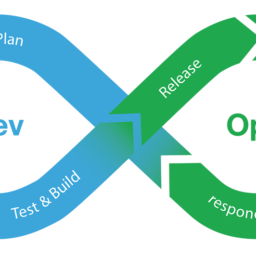The DevOps movement has gradually gained momentum in 2016. This led to considerable acceptance by mainstream organizations and small tech start-ups. According to a survey report by DevOps group, seventy-four percent of professionals agreed to consider DevOps adoption in 2016. This was eight percent more than the previous year.
Organizations which are effectively applying DevOps practices and tools, tend to ahead of their rivals across key metrics such as growth and profitability. As a result, the technological advantages of DevOps permit teams to gain huge business benefits while affecting the bottom line.
Even though a number of software-based organizations have been early adopters of DevOps, its scope is presently more extensive than before. Certainly, there are businesses out there trading in real devices and products that wonder whether DevOps is the appropriate practice for them.
In this blog, we will see how the attributes of DevOps that have made it a remarkable achievement in software engineering can be further smeared to the world of product engineering services.
Now the question arises, why should you care regarding DevOps in product engineering services?
The main reason is that of the majority of industrial and electronic gadgets and devices that we have currently run of the software inside them. This produces a lot of quantifiable data which can be excavated for actionable business intelligence. The software itself requires to be managed, evaluated and upgraded in actual time. As a result, this creates the requirement for quicker and uninterrupted delivery and operational agility across mobile and cloud systems.
1. Breaking the Cost vs. Quality Trade-Off
At some point, the majority of the organizations, have to select one thing between quality and cost in order to meet delivery deadlines.
This sort of compromise can become a major liability moment, in the world of product engineering services. Failure of live devices is not an option, considering the criticality and sensitivity involved in a project.
By taking on a DevOps practice, we can have tools in place to computerize chores that assist in saving time. This includes setting up virtual machines, evaluating and connecting software and firmware, and modernizing devices distantly. This complete automation saves us time and cost, freeing up people to focus on the product itself. At the same time, QA becomes an essential part of the general procedure rather than being a separate function. Teams are able to now synchronize with each other more vigorously which assists in averting glitches instead of resolving them once they occur.
2. Enhancing the Customer Experience
Technology has permeated nearly every facet of our lives today. From the transport sector to any sort of food industry to entertainment and banking to checking up on your home devices distantly. Everything is factually at our fingertips through apps on our tablets and phones. These services and apps have to be rapid, instinctive, and a step ahead of customer requirements.
On the contrary, we deal with an extra layer of physical elements in the world of connected devices. These devices encompass; medical devices, public transport vehicles, cameras, and GPS. With the implementation of the DevOps methodology in this environment, the team can proactively prepare for actual failure situations with the utilization of device simulators. We can apply continuous observing and prompt feedback. The quicker time-to-market with continuous improvement and updates of quality leads to a relentlessly enhanced customer experience.
3. The 3 Cs: Collaboration, Communication, Cooperation
Creating customer delight is the main aim of any business. Utilizing connected devices, we attain the ability to give a customer with the liberty to use any device and impeccably shift between platforms and devices without bargaining on the experience bringing together numerous departments, teams, and skillsets.
By assimilating DevOps in the development, placement, and repairs of devices, a unified 360-degree combined environment can be attained that permits for the uninterrupted advice loop, live monitoring and no chances of failure.
In a DevOps environment where a code is simple to construct without the fear of loss of quality, it is simpler to gratify to custom demands ranging from device compatibility to latest features and modification.





